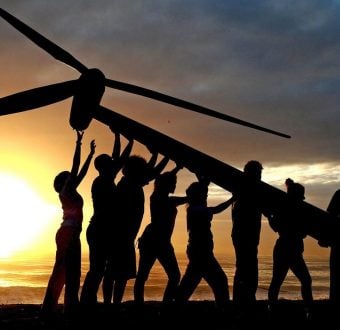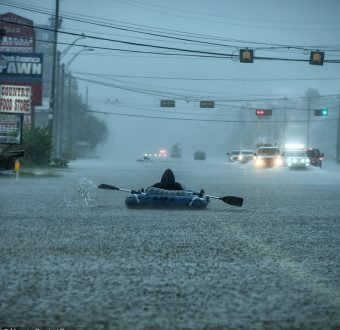Its tempting to proclaim that something really bad is over. Were supposed to move on, right? To get on with our lives?
But when really bad things dont end quickly, attempts to proclaim them over or make them seem over are not just premature, theyre shocking, insulting, and just about always transparently driven by ulterior motives.
Its the fourth anniversary of the BP Deepwater Horizon blowout. It was arguably the worst and largest environmental disaster in American history. About 200 million gallons of oil poured into the Gulf of Mexico, destroying marine and wetland ecosystems and devastating once-vibrant fishing, aquaculture, and tourism industries. Communities were torn, and peoples livelihoods were taken away from them. Eleven people died in the disaster, victims of corporate cost-cutting on safety.
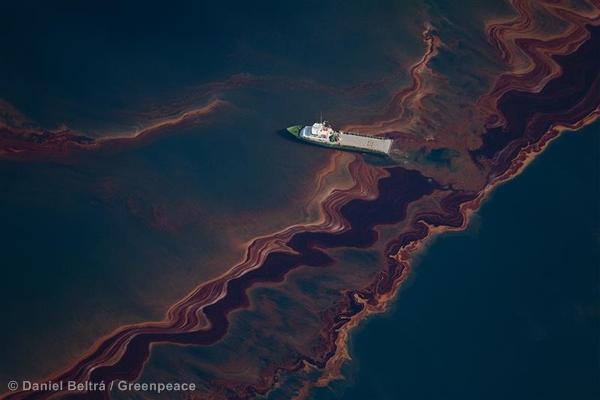
A view from an altitude of 3200 ft of the oil on the sea surface, originated by the leaking of the Deepwater Horizon wellhead disaster.
Now British Petroleum wants to declare the clean-up over. Of course it does.
The thing is, its not over. Its not over for the people who are waiting for their homes and lives to return to normal. Its not normal for the people who are waiting as BP stalls in its restitution payouts. Its not normal for the animals experiencing higher mortality, greater levels of toxins in their bodies, and, in some cases, little to no reproductive activity since the spill.
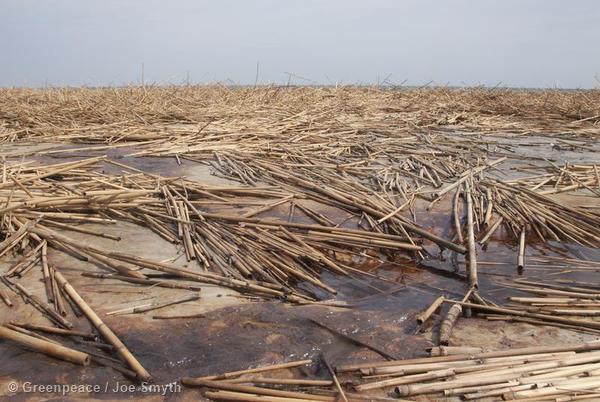
Oil is visible after being washed up by Hurricane Isaac on West Ship Island, Mississippi, part of the Gulf Islands National Seashore. This area was heavily oiled during the British Petroleum Deepwater Horizon oil disaster, and officials are concerned that up to one million barrels of oil are estimated to remain in the Gulf of Mexico.
BP proclaims the oil gone and the water clear again, despite actual recovery being nowhere in sight. The question that lingers, particularly in light of ongoing impacts of oil spills like the Exxon Valdez spill (which happened 25 years ago) is: will things ever be normal again?
If you think that question is hyperbolic, here are five reasons you should think again.
1. Fisheries have fared poorly since the blowout, with some still stalled. This has brought serious economic hardship to communities in Louisiana and Mississippi along the Gulf coast. Oyster production has done particularly badly, a huge blow for what was the largest oyster producing area in the country before the blowout.
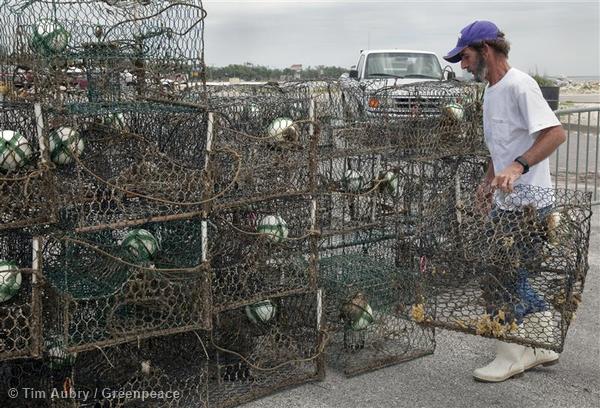
Robert Carr Sr. of Biloxi, stacks the last of their crab traps after bringing them into shore in Gulfport.
2. Preliminary findings from a massive study by the National Institutes of Health show anomalous health problems among workers from the clean-up. Four years after the spill, many workers report strange respiratory conditions, including chronic wheezing. Depression and anxiety are both 30% higher for workers. And the long-term prognoses are not known.
3. According to a report by the National Wildlife Foundation, major marine species in the Gulf, including dolphins, sea turtles, and bird species are experiencing prolonged effects from the oil. Four years after the spill, we are still seeing exceptional numbers of dead sea turtles washing up in heavily affected areas, around 500 a year. And bottlenose dolphins in affected areas are still abnormally sick and showing high rates of stillbirths.
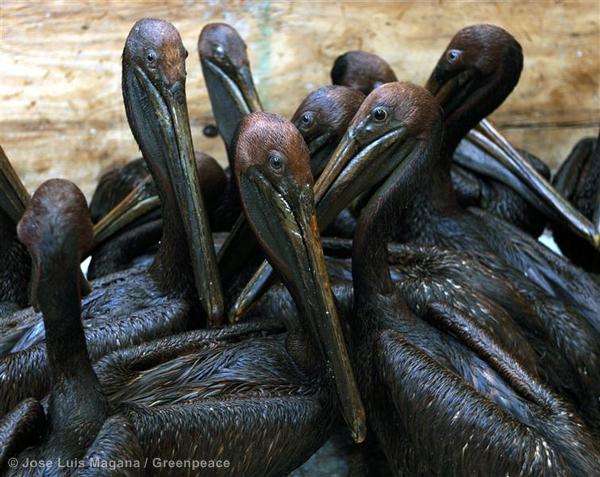
Oil covered pelicans found off the Louisiana coast and affected by the BP Deepwater Horizon oil spill in the Gulf of Mexico wait in a holding pen for cleaning at the Fort Jackson Wildlife Rehabilitation Center.
4.Another study, this time led by NOAA, shows that when major fish species are exposed to the same oil that spilled in the Gulf, fatal birth defects are common. The species tested include commercially-valued bluefin and yellowfin tuna and amberjack.
5.Delayed payments, legal challenges, and stalling tactics are putting a match to what little good will BP had in the area. Although some people have been compensated, there is widespread anger at how uneven the payouts have been. Now BP is fighting to delay and overturn payments it deems too steep. These payments were part of a deal it made in a settlement in 2012, in which BP gave up control over who got paid.
Four years after British Petroleums spill in the Gulf of Mexico, communities have not recovered, ecosystems and animals are still struggling, and the company who made the mess is now pulling away and acting as if its job is done. And all of this has happened on the continental United States, under what couldand shouldbe intense media and public scrutiny.
Big marine oil spills stay around for a long time. The oil stays around. The ecological and economic hardship stay around. And the damage to communities stays around. Even when were all watching. If we take a lesson from Deepwater Horizon, it should be that big marine oil spills stay around for a long timethe oil stays around, the economic and ecological hardship stays around, and the damage to communities stays, too.
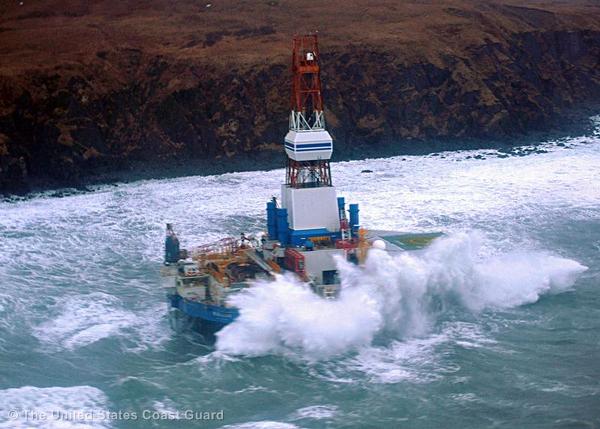
Waves crash over the conical drilling unit Kulluk where it sits aground on the southeast side of Sitkalidak Island, Alaska, January 1, 2013.
So when we have a chance to stop it from happening again, we have to do all we can. As Shell, which has a proven history of debacle in the Arctic, schemes to go drilling in that remote, rough, and pristine place, we must be extra vigilant. Nobody, let alone Shell, can clean up an oil spill in temperate weather close to home. What happens when a spill of a similar scale occurs in rough, icy waters and flows under sheets of ice?
It’s up to us to halt drilling in the American Arctic and to protect one of the world’s greatest and least-touched ecosystems. Pleasesign the petitionagainst Arctic oil exploration today.


